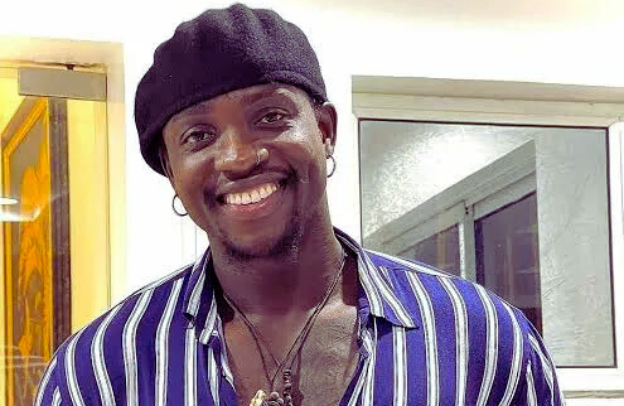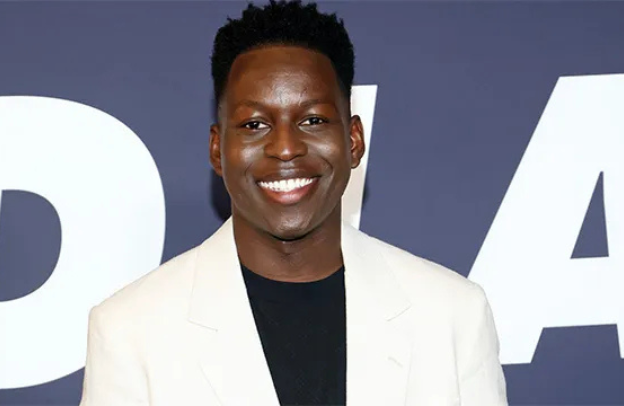General Abdulsalami Abubakar, The 11th Head of State of Nigeria – 1998 to 1999

General Abdulsalami Abubakar was Nigeria’s statesman and retired military general who tendered the position as Nigeria’s head of state for a short term, from 1998 to 1999, after the abrupt demise of his predecessor, Sani Abacha, whose death remains a puzzle amongst Nigerians.
Want to learn more about storytelling? Start by downloading the first chapter of The Storytelling Mastery for Businesses.
Despite his short period in office as the head of state, Abubakar took all initiative to return the country to civilian rule. Thence, the time and effort he dished in place to ensure this return to civilian rule made him the second military head of state to have ever done so aside from Olusegun Obasanjo.
Indeed, the tenure of General Abdulsalami Abubakar as the 11th head of State of Nigeria marked a significant departure from the chaotic period that had preceded it. His leadership was characterized by a commitment to maintaining a sense of tranquility and upholding human rights, creating a complete contrast to the administration of his immediate predecessor.
Abubakar’s administration took steps to promote human rights and civil liberties. He released political prisoners, encouraged freedom of the press, and fostered an atmosphere where Nigerians could express their views without fear of reprisal. This commitment to human rights and freedom of expression was evidence of his desire to create a more inclusive and democratic society.
His Early Life
The life journey of General Abdulsalami Abubakar is a story of humble beginnings, educational excellence, and a commitment to service that would eventually shape Nigeria’s history. Born into a modest Islamic family, Abubakar’s early years were rooted in the cultural and familial traditions of his birthplace in Minna, Niger State.
Abubakar’s educational journey commenced as he transitioned from socializing with his family to attending school. His early education unfolded at the renowned Native Authority Primary School in Minna, from 1950 to 1956. During these formative years, his academic prowess began to shine through.
His primary school education laid a solid foundation for his academic pursuits, and he continued his educational journey at Government College, Minna, from 1956 to 1962. Here, he completed his secondary education, obtaining his secondary school certificate. This period was marked by dedication to his studies.
In 1963, Abubakar embarked on a new phase of his educational journey by enrolling in Kaduna Technical Knowledge. This institution broadened his horizons in the realm of technology and allowed him to master technical skills that would prove invaluable in his future.
His Military Career, starting from 1966
Abubakar made his venture into the military in 1966 when he joined as an officer cadet, marking the beginning of a distinguished career that lasted several decades.
His early years in the military were marked by a commitment to training and professional development. Abubakar attended the Emergency Combatant Short Service Course Two, a program designed to prepare officers for the challenges of military service. This intensive training laid the foundation for his future leadership roles.
In October 1967, Abubakar achieved a significant milestone in his military career when he was commissioned as a second lieutenant in the infantry division of the Nigerian army. This marked the formal recognition of his dedication to military service.
During the period from 1967 to 1968, Abubakar took on the role of General Staff Officer 2 within the Second Garrison. This role required a deep understanding of military operations and logistics, reflecting his growing expertise in the field.
Subsequently, he assumed the position of Commanding Officer of the 92 Infantry Battalion from 1969 to 1974, a position that demanded leadership, strategic thinking, and a commitment to discipline.
Between 1974 and 1975, Abubakar’s responsibilities expanded as he took on the role of Brigade Major within the 7th Infantry Brigade. This position placed him in a pivotal role within the military structure, overseeing brigade-level operations and further honing his leadership skills.
Abubakar served as an instructor at the Nigerian Defense Academy (NDA) from 1980 to 1982 and was known for his unwavering commitment to training the next generation of military leaders. His military skills and expertise were invaluable assets that he transferred to the cadets under his guidance. After his tenure as an instructor at the NDA, Abubakar’s career took another significant turn.
In 1986, he assumed the role of Secretary of the Army, a position that demanded not only military competence but also administrative skills.
Abubakar’s unwavering commitment to the Nigerian military and his relentless efforts did not go unnoticed. His dedication earned him favor during the administration of General Sani Abacha. In 1997, Abubakar was appointed Chief of Defense Staff, a role that placed him at the apex of Nigeria’s military hierarchy.
However, fate had even greater responsibilities in store for Abubakar. Following the sudden and untimely passing of General Sani Abacha in 1998, Abubakar was called upon to assume a position of even greater prominence—the Head of State of Nigeria. Assuming office as the head of state enabled Abubakar to bring the country into some measures of peace.
Becoming the President of Nigeria
In the wake of Abubakar’s ascension as the military president of the country, he declared a nationwide mourning for his late senior officer, Abacha which the citizens obeyed.
His promise of relinquishing power to a civilian elected president was met with criticism, considering that his predecessor, Ibrahim Babangida failed to move the country back to civil rule after the 1993 election. However, in Abubakar’s case, it came solely as a surprise when he scraped the political parties Abacha had created, making himself the presidential candidate, to the formation of new policy parties.
His first attempt was amending the 1979 constitution to fit in the multi-party system which he wanted to introduce. At that, he transformed the National Electoral Commission, the body in charge of conducting elections into the Independent National Electoral Commission. With the necessary changes in place, elections kicked off from the local government level to the national assembly level and then the president.
Despite Abubakar’s efforts to ensure the election was free and fair, there were streaks of irregularities that raised foreign criticism. However, despite it all, Olusegun Obasanjo emerged as the president, ushering in the country’s fourth republic.
His Legacy And Remembrance
Abubakar’s legacy since his service in the military to the president was a muddle of good and bad acts. He allegedly claimed to have murdered Moshood Abiola, the president-elect of the 1993 general elections, who was detained by the military.
His declaration of nationwide mourning of Abacha further proved to people he was a staunch supporter of Abacha whose leadership was characterized by human rights abuse.
Want to learn more about storytelling? Start by downloading the first chapter of The Storytelling Mastery for Businesses.





